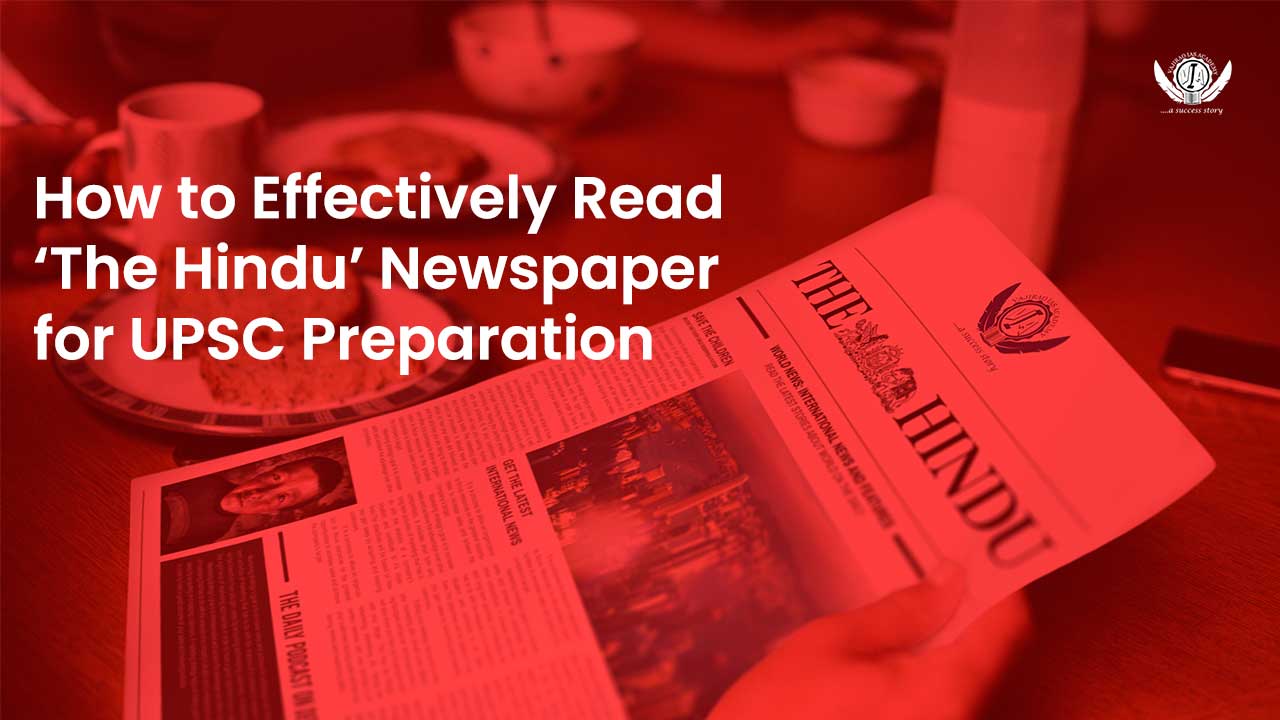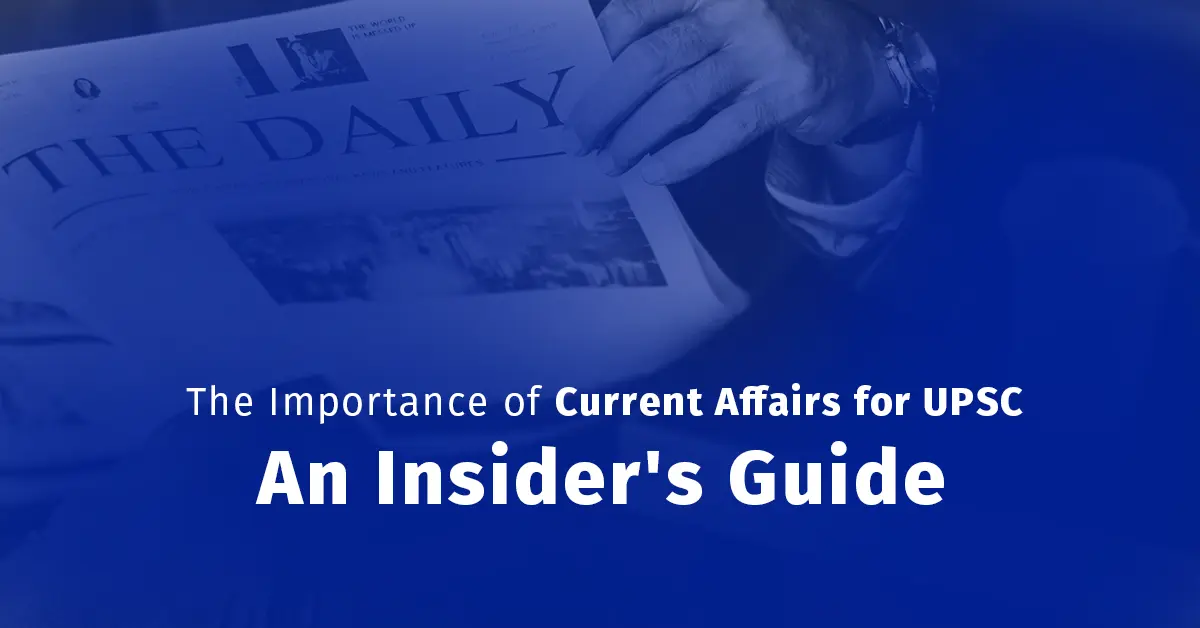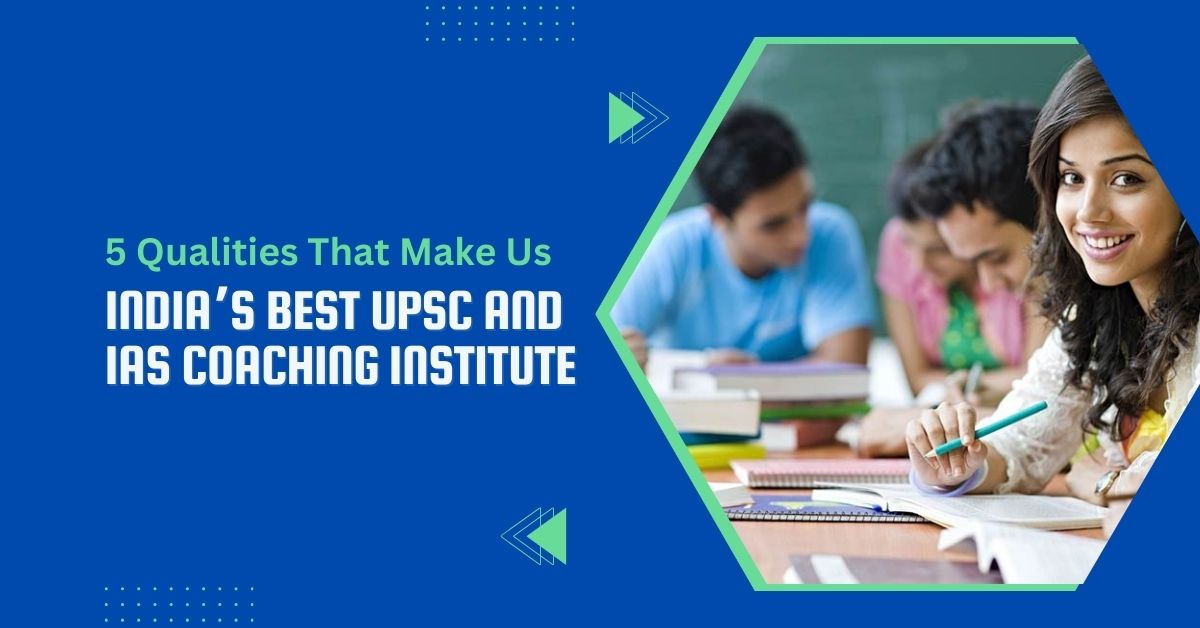Nothing can come even remotely closer to ‘The Hindu’ newspaper reading as far as success in UPSC is concerned. Newspapers are the sources which provide with vital and important study references for current affairs. Almost all the UPSC aspirants follow the ‘The Hindu’ newspaper daily and religiously. But there are concerns regarding its effectiveness. Aspirants complain that it consumes a lot of time and energy.
It cannot be refused that ‘The Hindu’ forms an indispensible part of UPSC Preparation.
In this article, we will survey the effective ways through which one can go through the newspaper effectively and within a lesser span of time:
Why ‘The Hindu’?
The Hindu, by far is considered to be the most reliable source of credible information of national and international importance in India. It is followed by both the aspirants and the usual citizens alike. The thing that mostly works in its favour is the fact how specifically they tend to distinguish between noteworthy news and popular opinion. For the beginners, who do not a newspaper reading habit, the Hindu might seem dreary but believe us this the best piece of information leaflet in your hands to know about the happenings in and outside the country.
To go through all its content with an in-depth analysis is ought to occupy 3-4 hours of your time, but being UPSC aspirants, we need to be smart enough in our approach. It is advisable not to spend more than 60 minutes a day on the newspaper. Here comes the tricky part, knowing its importance and finishing down it within an hour is quite difficult. But that’s how it works. Let’s have a look at the effective ways through which it can be done:
- Different from Rest:
Reading the Hindu newspaper for UPSC preparation is comparatively different from the casual reading (most of us focus on the sports or entertainment page only…!!!!). The aim of newspaper reading should be to gain appropriate knowledge about the socio-economic and political happening n the country which might impact our social lives as well. You need to make sure that you only read such news and content which are relevant in the context of the exam.The objective becomes more profound when you attach the study process with it. You must keep in mind the following pointers:
- Keep a tab of crucial facts and figures
- Try understanding the various social, economical and political issues involved with the piece of information.
- Page-Wise Review:
- PAGE 1: The first contains the most happening news headlines of the previous days, but mind that not every headline is equally important. Choose the ones which have relevance as per the UPSC syllabus. They are majorly given in brief in the first page and continued on the next one.
- PAGE 2-6: These pages mostly contain the regional news of the respective states. The content will vary from state to state and so not that very important. However, this can be read to keep a tab of the things happening in your native state and these news articles can be used as examples which will aid your ethics paper answer writing.
- PAGE 7: This is one of the most important pages of the newspaper containing information and articles related to national importance. Look for keywords such as SC/HC verdicts, welfare policies, government schemes etc. Do make it point to jolt down important points from this page and include them in your notes.
- PAGE 8: ‘THE EDITORIAL PAGE’, the most important page off the newspaper. These pages tend to give different viewpoints regarding various impending current happenings – be it national or international. The two articles on the left page are very crucial. Reserve the majority of your 60 minutes for this section to gain exemplary insights into the trending issues.
- PAGE 9: the ‘Op-Ed’ Page, or ‘Opposite the Editorial Page’, it contains the personal opinions of an author who is not part of the newspaper’s editorial board.
- PAGE 10 and 11: These pages contain only the general news. Just go through the headlines and if you find something worth reading then go for it.
- PAGE 12: This page is full of news of international importance and pertains to topic ‘International Relations’ mentioned in the UPSC syllabus. This is very helpful in lieu of the GS-2 paper of the UPSC Mains exam.
- PAGE 13 and 14: It mainly contains the business related news. Narrow down your focus to growth parameters, monetary policy, FOREX reserves and any other news related to health and education.
- PAGE 15: The Sports Page. This is the page with least importance. Try not to spend much time on this page. If any, just note down notable achievements and sports administration related issues.
Gaining credible knowledge from the newspapers which can be used to clear the exam is more crucial than your interest. With a vast amount of content and stories available, it is easy to get tempted to read about a favourite topic. But at the end you will find yourself with paucity of time. Always remember your favorite topic can wait to be read but not the UPSC exam. Get your priorities straight.
Try to categorize the news items into various subjects like geography, polity, economics, environment, ecology, science and technology, etc. More than anything, this will ease your burden when you get back to the notes you prepared while reading the newspaper.
Be very particular about newspaper reading. Devote your full concentration on the newspaper in hand and sit down at one place to complete.
Reading newspapers daily will help you in all the stages of the exam – be it prelims, mains or interview. You need not be a pro newspaper reader, right from the word go. To inculcate and imbibe these tips might take some time and till then, if it takes more than an hour to complete, it’s completely alright. But once mastering the tips will see you achieve your desired goals. It is best to not get caught up in city news, petty crimes and politics.
Newspaper reading even as such is a very wonderful habit. Above all, it makes you a well-informed and social aware citizen of the country.




